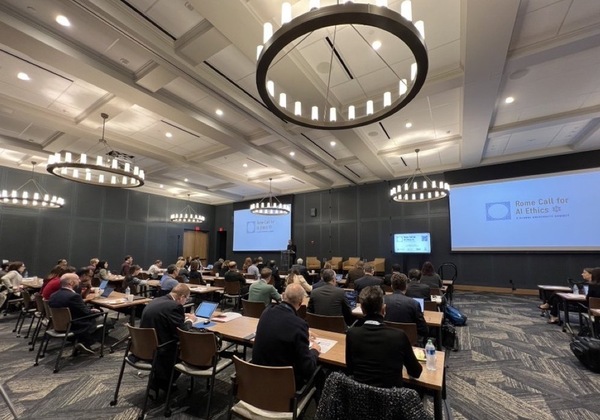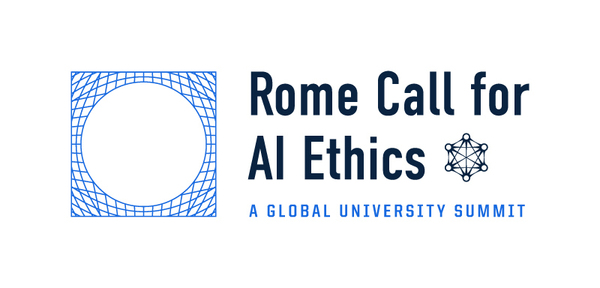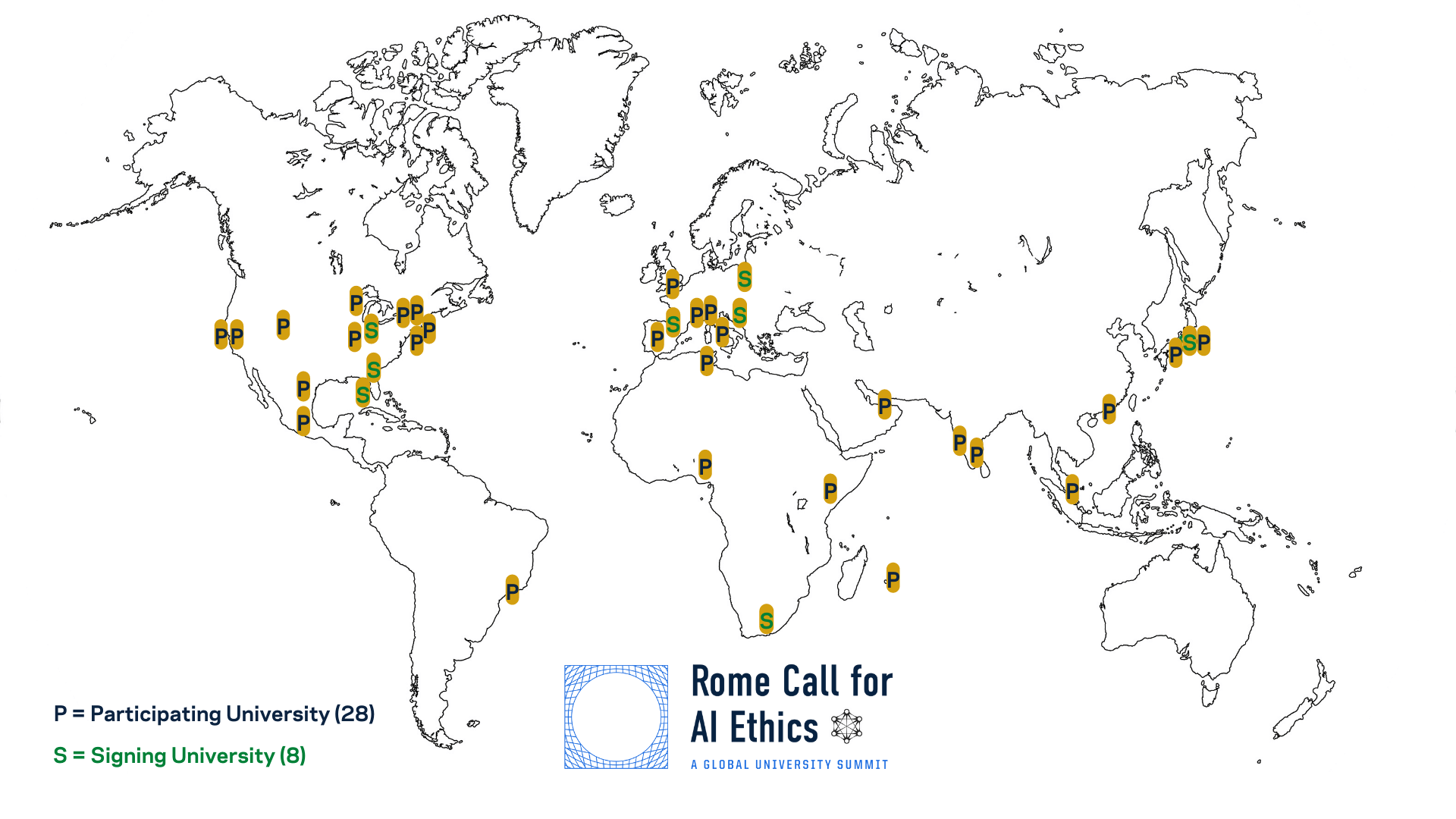
Co-organized by the Pontifical Academy for Life, IBM, and the University of Notre Dame and hosted by the Notre Dame-IBM Technology Ethics Lab, the Rome Call for AI Ethics: A Global University Summit was convened in Notre Dame’s McKenna Hall October 26–27.
The Rome Call for AI Ethics is a commitment around ethics, rights, and education, aiming to promote an ethical approach to the design, development, and deployment of AI. It seeks to advance a sense of shared responsibility among international organizations, governments, institutions, and the private sector to create a future in which digital innovation and technological progress are centered around humanity.
Published in February 2020, the Rome Call was originally signed by the Pontifical Academy for Life, Microsoft, IBM, the Food and Agriculture Organization of the United Nations (FAO), and the Italian Ministry of Innovation.
Representatives of 36 universities attended the summit to learn more about the Rome Call, discuss how its principles might be put into practice in the context of higher education, and explore opportunities for collaboration.

The summit featured four keynote addresses:
- “Who is Responsible for Responsible AI?” – Pascale Fung, Hong Kong University of Science and Technology
- “AI Ethics for All: A Broader Perspective on AI Education” (8mb PDF) – Casey Fiesler, University of Colorado Boulder
- “Trustworthy & Responsible AI Considerations: Principles | Policies | Practice” (4 mb PDF) – Alpesh Shah, IEEE
- “Ethics-Based Auditing of AI: What It Is and Why It Matters” – Luciano Floridi, University of Oxford
Themes that emerged from the keynotes and the panel discussions that followed them included the importance of advancing interdisciplinary approaches to AI ethics, both in research and the education of undergraduate and graduate students, as well as the need to develop strategies to better reach industry and communities.
Participants in the summit had the chance to brainstorm potential ways the group could pursue these goals. Ideas ranged from creating a common, shared catalogue of courses/modules and jointly advocating with accrediting bodies to include AI ethics in required curricula to pooling resources among collaborating universities and increasing incentives for faculty to undertake AI ethics research. It was proposed that the universities could provide some of these incentives themselves while also partnering to encourage funding agencies to recognize the importance of this type of work.
Among the 36 universities represented, eight attended the summit for the additional purpose of formally signing the Rome Call:
- Catholic University of Croatia
- Chuo University (Japan)
- Schiller International University
- SWPS University of Social Sciences and Humanities (Poland)
- University of Florida
- University of Johannesburg
- University of Navarra (Spain)
- University of Notre Dame
The signing ceremony concluded the day-and-a-half event and began with remarks from Dario Gil, IBM Senior Vice President and Director of Research, and Archbishop Vincenzo Paglia, President of the Pontifical Academy for Life, followed by comments from campus leaders at each of the eight universities.
More information about the Rome Call for AI Ethics is available at romecall.org.

To see the full list of attending universities, go to techethicslab.nd.edu/romecall.
